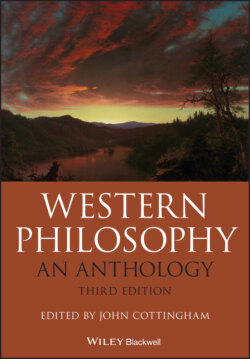Читать книгу Western Philosophy - Группа авторов - Страница 31
Making the Subject Your Own
ОглавлениеYou cannot be expected to delve into all of the reflective questions just mentioned in a short philosophy essay, and inevitably you will have to be selective (just as you have to be selective about which bits of the text to focus on). But the key to enjoying the exercise (and as with worthwhile activity in life, if you enjoy it you are more likely to do it well) is to commit yourself, to enter into the argument, to make it your own, to develop your own reactions. Of course when you are beginning a subject it can be annoying to be asked ‘what is your view?’ One may be tempted to reply in exasperation, ‘I don’t have a view yet!’ But in the very process of unpacking a philosophical argument, teasing out its assumptions and putting them under the spotlight, you will inevitably be engaging with it, and moving towards developing a response of your own.
But do not worry if the issues seem confusing at first, or if your own thoughts about them seem confused. Thoughts do not clarify themselves by whirling around on their own: they become clear, above all, through being put down on paper (or on screen). So despite the advice so often given to essay writers, to make a plan or summary of your essay before you begin writing, it is often best to start straight in with the process of analysis and exegesis. In unravelling the arguments and trying to lay them out as clearly as possible in written form, ideas will coalesce, and your own position will, if all goes well, emerge.
Despite the great value of careful analysis in tackling a philosophy project, one also needs to remember that no problem was ever dealt with solely by breaking it into smaller and smaller components. It is always worthwhile trying to keep an eye on the wider perspective, on how the position you are examining fits in, or fails to fit in, with your picture of reality as a whole. In the Berkeley example, as will be clear if you go on to study this particular extract in detail, his view that nothing really exists outside of a mind (or minds) is intimately connected with his theistic or God-centred outlook – an outlook that Berkeley takes to be incompatible with the independent existence of unthinking matter. As Berkeley sees it, the divine mind, the mind of an ‘Eternal Spirit’, encompasses all that there is, and the notion of material stuff or substance, existing out there, independently, or on its own, makes no coherent sense.
Don’t be afraid to think about how this viewpoint matches, or fails to match, your own outlook. In philosophy we should always strive to be open minded, but none of us ever comes to a philosophical text ‘cold’, or is able to assess it from a standpoint of pure impartial reason; we always bring preconceptions and baggage of one sort or another to our reading. But it is in the tension between our preconceptions and the challenges of the text that something interesting and worthwhile often emerges.
